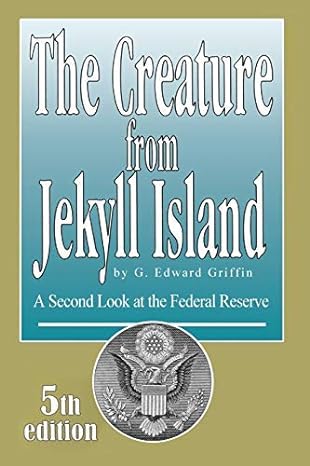In his compelling bestseller, The Creature from Jekyll Island, Edward Griffin explores the intricate and often concealed mechanisms of global financial institutions, with a particular focus on the World Bank and the International Monetary Fund (IMF). One of the most striking themes in the book is the assertion that these institutions are not merely focused on economic development, but rather on promoting a hidden agenda—one of global socialism.
Unveiling the World Bank’s True Purpose
Griffin meticulously examines the World Bank’s operations, revealing that, while it publicly addresses economic issues, its underlying activities are deeply entwined with social and political objectives. This is not a coincidence; the World Bank was established with the intent of facilitating social and political change across the globe. The ultimate goal? The establishment of a worldwide socialist order.
The World Bank’s focus on “Sector Loans” and “Structural Adjustment Loans” is particularly telling. In these lending categories, only a small fraction of the funds is allocated to specific projects, while the majority is directed towards broad economic restructuring. This restructuring is not just economic in nature but is designed to increase the power of the state over the economy—a hallmark of socialist policy. As Griffin puts it, “If the money originates from a government, is passed to a government, and is managed by a government, the result is the expansion of the government sector.”
The Role of the IMF and Structural Adjustment Programs
The IMF, another major global financial institution, is also scrutinized in Griffin’s analysis. The conditions attached to the IMF’s structural adjustment programs often include demands for policy changes that grant the state greater control over economic matters. These programs, while sometimes appearing to support the private sector through measures like reducing government subsidies, ultimately serve to entrench state power and limit free-market operations.
Griffin cites economist Paul Roberts to highlight the overarching belief guiding these institutions: “The entire ‘development process’ has been guided by the belief that reliance on private enterprise and stock investments is incompatible with economic and social progress.” This belief has led to a situation where the economic life of many less developed countries (LDCs) has been heavily politicized, with disastrous results.
Consequences of the Hidden Agenda
The consequences of this hidden agenda are far-reaching and often devastating. Griffin provides numerous examples, particularly from Africa, where World Bank and IMF policies have enabled and even financed oppressive regimes. In Tanzania, for instance, the World Bank supported Julius Nyerere’s disastrous “village program,” which forcibly relocated millions of people, resulting in widespread poverty and hunger.
Similarly, in Ethiopia, the Marxist regime of Mengistu Haile Mariam implemented policies that led to a catastrophic famine in the mid-1980s. Despite the obvious failures of these regimes, they continued to receive substantial financial support from the World Bank. This support, according to Griffin, is not an oversight but a deliberate aspect of the global socialist agenda. “The IMF and the World Bank have allowed governments around the world to more efficiently expropriate the wealth of their citizens… while expanding their own power.”
The Bretton Woods Conference: The Birth of Global Socialism
Griffin traces the roots of these policies back to the Bretton Woods Conference of 1944, where the IMF and World Bank were created. The conference, dominated by socialist thinkers like John Maynard Keynes and Harry Dexter White, set the stage for the abolition of the gold standard and the introduction of a global fiat currency system. This shift was designed to facilitate the spread of socialism by eroding the free market and increasing state control over economies.
Harry Dexter White, later revealed to be a member of a communist spy ring, played a crucial role in shaping these institutions. Griffin argues that the Bretton Woods institutions were never merely about stabilizing currencies or promoting trade; they were about laying the groundwork for a global socialist system.
The Need for Vigilance
Griffin’s The Creature from Jekyll Island is a stark warning about the true nature of the IMF and World Bank. Far from being neutral financial institutions, they are tools in a broader strategy to implement world socialism—a strategy that relies on increasing government control and eroding individual freedoms.
As Griffin’s analysis makes clear, it is essential to scrutinize the actions of these institutions and the ideologies that drive them. For those interested in exploring these ideas further, The Creature from Jekyll Island is a must-read. It offers a detailed, thought-provoking exploration of the hidden agendas at play in global finance.
For a deeper understanding of how global financial institutions shape world politics and economics, I highly recommend reading The Creature from Jekyll Island by Edward Griffin. This book is a fascinating and eye-opening exploration of the forces driving global socialism. You can find it on Amazon here




